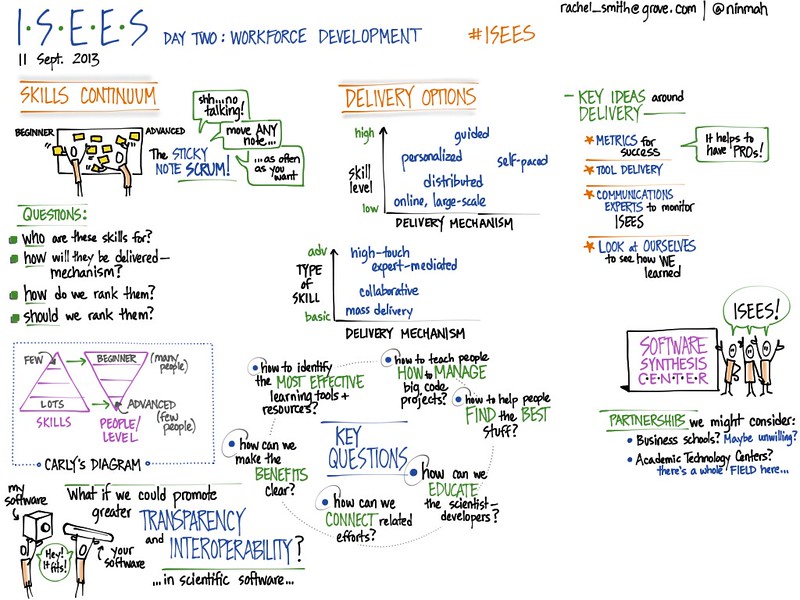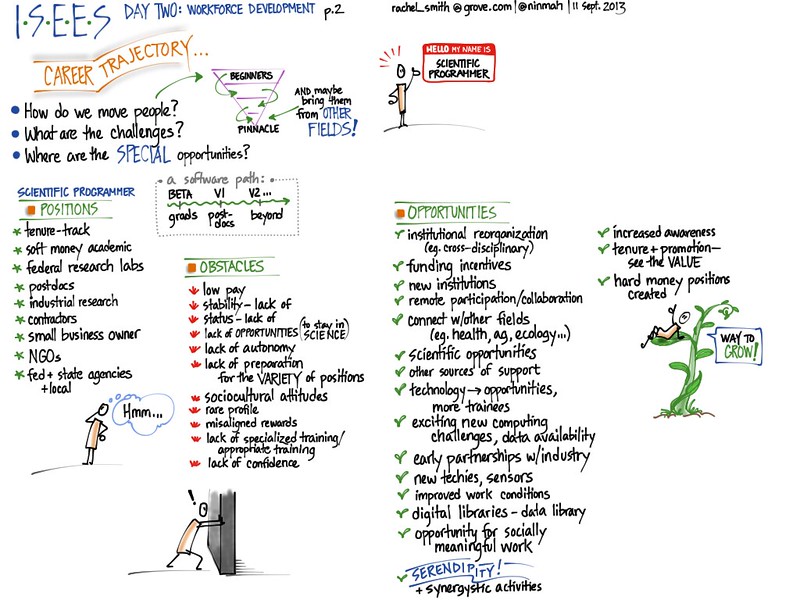Near the end of another excellent day of discussions we were asked to put pen to paper to outline our own views in writing. My own contribution was the following notebook scribble.
My own vision of what ISEES should be doing for workforce development:
ISEES would employ a multi-scale approach to improve basic computational expertise across the entire workforce necessary to fully participate in the modern software-immersed world of research through the development of training standards, while using a working-group model focused on emerging researcher-developer communities which would simultaneously improve the quality and synthesis of existing software tools while also delivering essential skills to the most transformative members of the research software communities.
Development and promotion of standards for computational training. A workshop model could allow these to be written and updated by the community. These could serve as a guideline for curriculum development and play a key role in assessment. Curriculum review panels within departments, as well as reviewers of grants which include a component of computational training, would at least have such consensus standards to which they could point, either to reject sub-standard practices or make the case for increased resources to meet these goals. Curriculum should be geared towards inclusion of this training as part of domain-specific classes rather than extramural classes.
Working groups or hack-a-thons bringing together “researcher-developer” domain scientists with software engineering experts would simultaneously provide a direct benefit to “hardening” (improving the interoperability, scalability, and sustainability) of existing software while also training the most influential members of the research community who are most frequently involved in training other domain scientists. By organizing such working groups around existing research communities, the incentive to participate would be higher as the outputs would be more directly aligned with existing research programmes, while at the same time training the researchers most active in software development in their domain and most likely to teach these skills to others.
Thirdly, ISEES should support workshops or small conferences to address developing concerns in software workforce training, including issues such as assessing current training practices, measuring improvement and the impact of the center, or challenges in software career paths.
Didn’t really jot many notes down in today’s session, but will instead link the excellent prepared by our awesome expert facilitator Rachel Smith.

